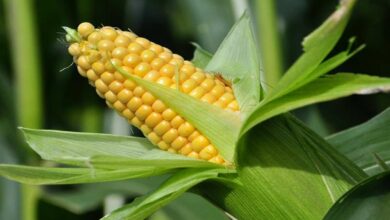Organic Farming: Adopt these new steps for organic and zero budget farming
Organic Farming: The balanced use of agrochemicals was developed with the task of feeding India’s expanding population with food grains in mind. It was thought that agrochemicals should only be used sparingly and only when absolutely required. However, farming became hazardous as a result of the indiscriminate use of these chemicals throughout time.

Serious illnesses like cancer become more common as a consequence. Anger against agrochemicals is rising in all spheres of society as a result of their toxicity in crops, soil, and water. At the same time, a new awareness of zero-budget farming (natural farming) and organic farming is growing.
The significance of organic farming and the impact of agrochemicals
Soil fertility is decreasing as a result of the growing usage of agrochemicals. In an effort to increase profits, farmers are using excessive amounts of pesticides, which is worsening crop quality and contributing to the climate change issue. One choice that helps us move toward a sustainable agricultural system in such a scenario is organic farming. Utilizing materials that are found naturally, organic farming contributes to the preservation of agricultural production, soil quality, and environmental equilibrium.
Overview of Farming on a Zero Budget
Natural farming, also referred to as zero-budget farming, is a chemical-free agricultural practice. It mostly employs materials from animal husbandry, including cow urine and manure. ‘Jeevamrit’ and ‘Ghanamrit’ are made from them, and they improve the soil’s fertility.
Jeevamrit: A crop-spraying mixture made of lentil flour, soil, jaggery, cow dung, and cow urine.
Ghanamrit: It is used to suppress pests and nourish plants.
Natural Farming’s Benefits
1. Low cost: Farmers that practice zero-budget farming do not have to purchase pesticides or fertilizers. Local resources serve as its foundation.
2. Enhances soil fertility: The organic quality of the soil is preserved via the use of natural resources like cow dung and urine.
3. Water savings: By requiring less irrigation, this technique uses 10–15% less water.
4. Healthful crops: Farmers may earn more money from chemical-free crops, and customers can purchase nutritious food.
Organic farming from a global viewpoint
Around the world, organic farming is growing in popularity. Around 72.3 million hectares of land were used for organic farming as of 2019, with Australia setting the standard. The foundation of this agricultural system is environmental preservation and the use of few chemicals. Organic agricultural standards are governed by the International Federation of Organic Agriculture Movements, or IFOAM.
India’s organic agricultural situation
Sikkim has been proclaimed India’s first organic state. In order to phase out the usage of pesticides by 2024, Andhra Pradesh has started the “Zero Budget Natural Farming” initiative. However, for organic farming to succeed, the following actions are required:
- Government agencies need to certify organic manure and make it reasonably priced.
- Farmers should have access to insurance plans to make up for losses sustained in the early years.
- Organic farming should replace chemical agricultural subsidies.
Ideas for promoting organic farming
In order to make cow dung and urine readily accessible, farmers should be encouraged to engage in greater animal husbandry. Instructions on how to make vermicompost should be provided. It should be encouraged to grow green manure in between harvests. The usage of organic insecticides should be prioritized. To raise awareness, government and non-governmental groups should provide training sessions.





